Myanmar’s transition to democracy and its search for ethnic peace interact in complex ways with the country’s many extensive and booming illegal economies: drugs, logging, mining, and wildlife trafficking. Tackling them is not easy, as I show in a detailed report prepared for a United Nations University project on the relationship between organized crime, illicit economies, and post-conflict transition. Inappropriate measures can undermine democratization, exacerbate an ethnic conflict already at its greatest level since the mid-1990s, and ultimately fail to suppress the illicit economies. Crime and anti-crime policies need to be considered through a political prism. Tackling Myanmar’s illicit economies needs to be undertaken judiciously, and with politics and balances of power in mind so that the political power of pro-plurality and pro-democratic elements is strengthened, not weakened, by tackling illicit economies and organized crime. Going after wildlife trafficking is currently the most auspicious area to prioritize.
The ceasefire-underground-economy nexus
For decades, Myanmar has been one of the world’s epicenters of opiate and methamphetamine production, coinciding with five decades of complex and fragmented civil war and counterinsurgency policies. In the early 1990s, the Burmese junta negotiated ceasefires with many of the insurgencies, and underpinned the agreements by giving the insurgent groups economic stakes in resource exploitation and illegal economies. Essentially, in exchange for ceasefires, it allowed to them to trade in anything, including drugs, gems, and timber.
Under international pressure, including from China, both the junta and some of the new ethnic rulers in their semi-autonomous regions subsequently proceeded—in the late 1990s and early 2000s—to suppress opium poppy cultivation. But unregulated and often illegal trade in timber, jade, and wildlife continued. Although local populations suffered major economic deprivation as a result of poppy suppression, the insurgencies maintained profits and the ceasefires lasted.
Since the middle of the 2000s, however, the ceasefires have started to break down, and violent conflict has significantly escalated. One of the causes of the ceasefire breakdown has to do with attempts to restructure economic deals: Since 2008, the previous Myanmar government and military, as well as powerful Bamar and Chinese businessmen linked to Myanmar’s military, have sought to restructure the 1990s economic deals to capture greater rents themselves. Thus, business conglomerates connected with the Myanmar military, such as Myanmar Economic Holdings Limited (MEHL), came to enjoy a special access to significant gem mines and other resource economies and trade more broadly, serving crucial political survival and profits interests of the military.
The Illicit Economies’ Golden Parachute
In 2011, the Myanmar military embarked on political and economic liberalization that set in motion forces that culminated in the electoral victory of Aung Sang Suu Kyi’s party in November 2015. However, the military has retained significant formal and informal power. Indeed, despite the military’s electoral miscalculation, much of the transition has been the discretion of the junta. Illicit economies played an integral part of the transition process, being a crucial element of the golden parachute that the junta awarded itself.
Any reforms that took place, including those directed at illicit economies—such as embracing greater transparency measures in mining, better enforcing logging regulations, and significantly weakening cronies’ power—were still at the direction of the military. Reforms and actions against illicit economies and organized crime that would not be advantageous to the military’s institutional power or enrichment of key individuals have not taken place, and could be subverted or vetoed by military powerbrokers.
Nonetheless, under President Thein Sein (2011-2016), significant economic liberalization was in fact undertaken, with a surprising willingness to change economic arrangements with privileged economic actors. Due to the growing economic competition, the footprint of the military conglomerates and crony companies in the formal economy was reduced. Thein Sein also launched an anti-corruption drive—while it was limited mainly to the civil service, it was not insignificant. A comprehensive new land law was passed, and some stolen land was returned to local populations, also thanks to civil society mobilization.
Going after Crime with Subtlety
Even so, any political rivals of the military—including the new government of Aung Sang Suu Kyi since March 2016—remain constrained in how much they can challenge the military or the illicit economies, as well as organized crime embraced by the military. In the larger balance of power, Suu Kyi’s hand remains weak, and she has not challenged the military on significant issues, including the constitution. That is perhaps not surprising, as such moves could still trigger a military coup. By retaining 25 percent of parliamentary seats, the military has a veto on legislation. It also retains control of all three security ministries.
Significantly, the internal political liberalization, as well as the rise of many new constituencies and political entrepreneurs, have also reduced her scope to maneuver, since prominent businesses and vast segments of the population participate in illegal economies. There are many tensions between the new government’s political survival imperative to stimulate economic growth and attempts to institute measures to combat corruption, organized crime, and illicit economies. If the Aung Sang Suu Kyi government fails to deliver economic growth, even her base may turn away from her. With a significant economic slowdown already characterizing its first year, the government is leery to attempt to purge illicit money from the formal economy, since that could have pronounced effects on GDP growth, poverty alleviation, and income redistribution.
Her government has undertaken some steps toward limiting the pernicious effects of Myanmar’s illegal and resource economies, such as by suspending mining licenses and undertaking other transparency efforts, as I detail in the report. Yet the effects have been highly limited, and regulation enforcement remains sporadic and selective. The Suu Kyi government fundamentally lacks enforcement capacity vis-à-vis a wide range of actors, from insurgent groups to military companies and powerful businesses.
For example, in April 2014, the Thein Sein government imposed a timber export ban. Although meant to reduce environmental destruction, improve the sustainability of the timber industry in Burma, and increase state revenues, the ban undercut economic profits for the Kachin ethnonationalists and their businesses, thus reducing their economic incentives for peace. However, illegal logging and massive environmental degradation—in which insurgent ethnic groups, the military, Bamar businessmen, and Chinese companies all participate—persisted until the 2015 global economic downturn. Wildlife poaching and trafficking remain rampant and fuel a ferociously expanding appetite for wildlife products in China and East Asia. And of course, the opium poppy economy—never replaced with adequate alternative livelihoods—has dramatically rebounded.
Moreover, geopolitical circumstances—specifically the deep involvement of Chinese businesses in Myanmar’s illegal economies—crucially affect Myanmar’s anti-crime policies. Some illegal economies and organized crime in Myanmar (at least until they explode in a highly controversial, contentious, and visible confrontations) serve Beijing’s and local Chinese interests. A decision in Nyipyidaw to tackle them will be of limited effectiveness unless Beijing and local Chinese government actors are also on board; worse yet, it risks a direct political confrontation with them.
[G]oing after crime and illicit economies needs to be a tool for increasing the power of a democratic and accountable government, and not for inadvertently weakening it.
In short, going after crime and illicit economies needs to be a tool for increasing the power of a democratic and accountable government, and not for inadvertently weakening it. If the government is weakened, targeted rivals may mobilize and subvert the efforts, perhaps even triggering a political crisis. Alternatively, because Myanmar’s overall economic growth would slow down, both the anti-crime project and the larger political democratization project could become politically unsustainable.
Within this basic balance of power in Myanmar, I recommend a set of policy measures to act against Myanmar’s illicit economies for the remaining time of Suu Kyi’s five-year term. These and others are elaborated in detail in the case study:
- Reinforcing political pluralization and accountability in a way that not only minimizes the pernicious effects of illicit economies, but also maximizes political power accumulation of democratic and pluralistic elements. This includes not treating the military and cronies as a monolithic entity, making alliances with those who benefit from adopting rule-of-law procedures, and most pernicious actors should be tackled sequentially, while more transparency is built into the overall system;
- Reinforcing the peace process by properly sequencing policies against illicit economies, including by not insisting on an early elimination of the drug economy without alternative livelihoods being in place, as well as prioritizing alternative livelihoods to tackle artisanal illegal logging while cracking down on industrial illegal logging; and
- Prioritizing going after Myanmar’s widespread and intense poaching and illegal wildlife trade, a low-hanging fruit among the illicit economies.
The Brookings Institution is committed to quality, independence, and impact.
We are supported by a diverse array of funders. In line with our values and policies, each Brookings publication represents the sole views of its author(s).

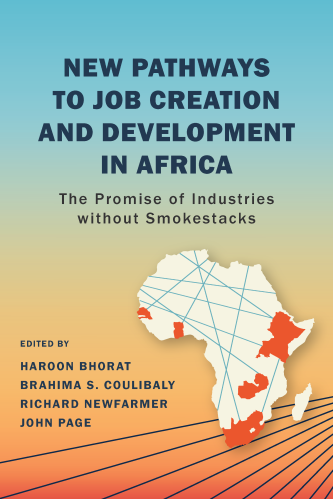
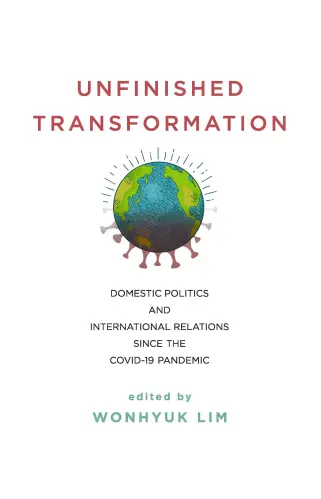

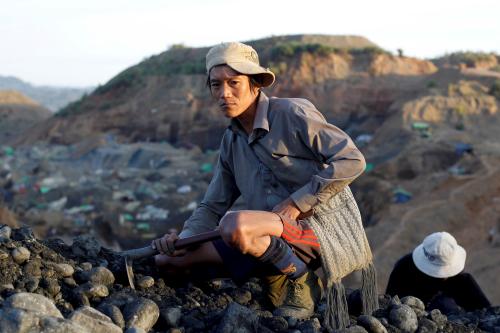
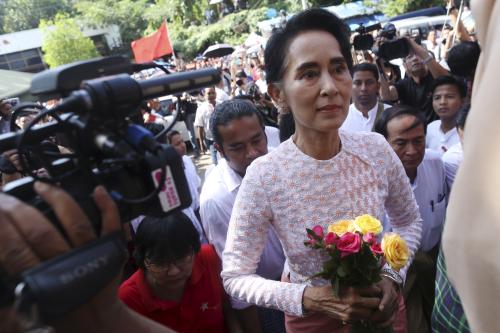
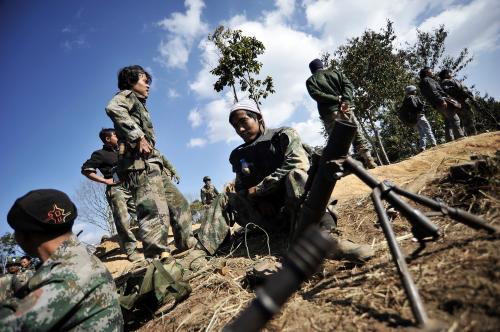


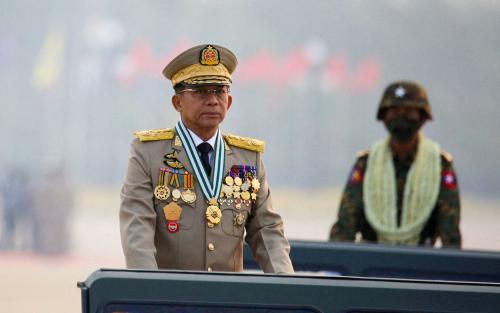
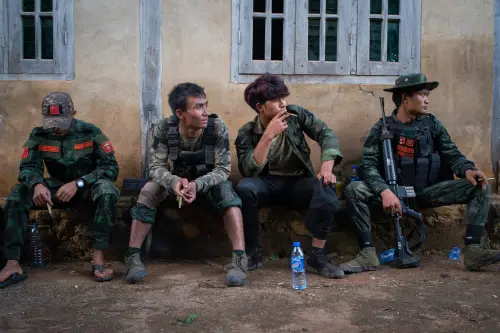
Commentary
How illicit economies in Myanmar help sustain conflict and underpin peace
April 24, 2017